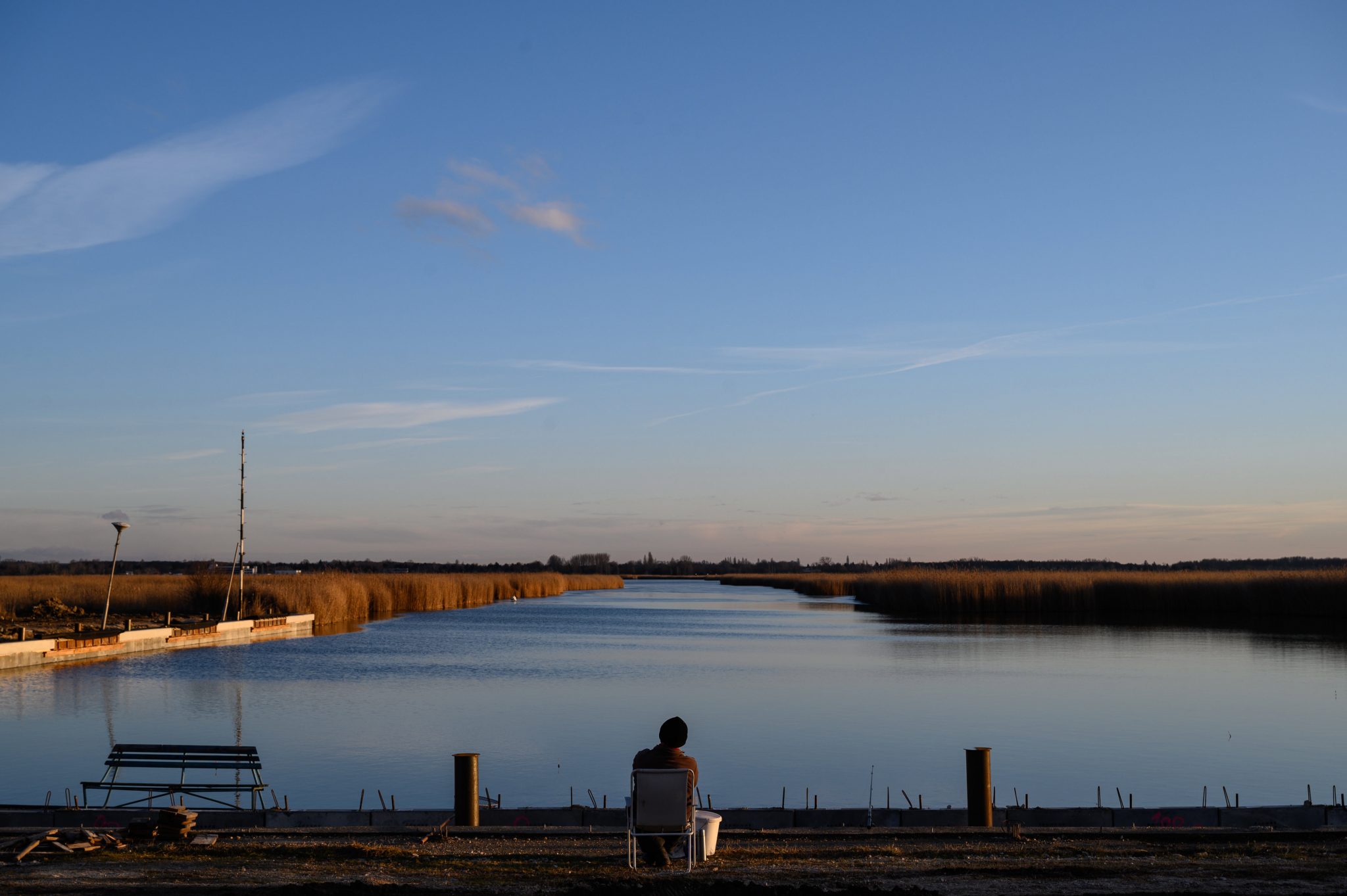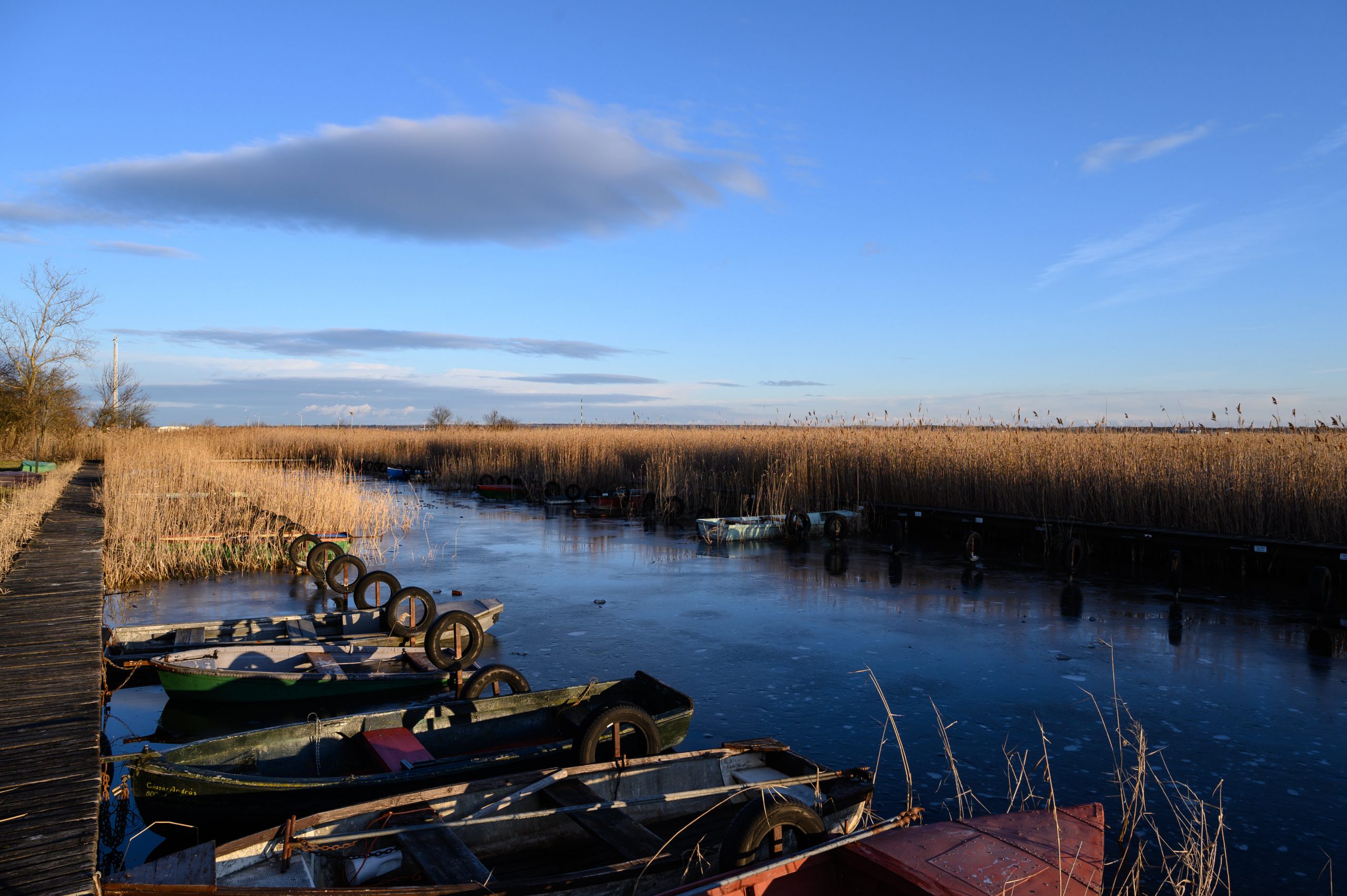
Daily reductions in the water level range from half to one centimeter per day.Continue reading

This summer, the water level of Hungary’s third-largest lake and popular tourist destination, Lake Velence, has fallen to critically low levels. While not long ago it seemed that the lake could be replenished in the near future, Zoltán Tessely, the government commissioner responsible for the development of Lake Velence, has now shattered hopes. According to the politician, even though supplementary water would be sorely needed, the Orbán administration is currently not backing the replenishment plan, as it wants to use the financial resources required for other things.
Lake Velence is the third largest lake in Hungary, and similar to Lake Balaton, one of the most popular tourist destinations. This summer’s extremely hot and dry weather did not favor the state of the lake. By mid-summer, almost half the water mass had disappeared and the water level is still alarmingly low: less than 90 centimeters deep instead of the ideal 160-180 centimeters. The situation has also taken its toll on the lake’s marine life. The water is so shallow and warm that more than three tons of fish, two percent of the total stock, drowned from lack of oxygen at the beginning of the summer.
Meanwhile, several construction projects aimed to develop and promote tourism have been launched near the lake, further deteriorating the situation.
The current state of Lake Velence is so concerning that less than a week ago a group of civilians started filling it with water from PET bottles to raise awareness of the problem.
Although a solution had seemingly been found earlier, the government appears to find it too expensive.
In a recent news report, Zoltán Tessely, the government commissioner responsible for the development of Lake Velence, who is also the MP of the region from ruling Fidesz, said that a proposal to replenish the water level, costing 40 billion forints (EUR 112m) had been created, and everyone was hopeful that it could soon be adopted and the replenishment of the lake could begin.
The proposal was even backed by the operative board responsible for relaunching Hungary’s economy, and Foreign Minister Péter Szijjártó, who heads the board, presented it to the government.
However, due to the alleged large amount of funding the project would require, the government does not intend to provide the money in the current situation.
The government argues that they want to primarily use the financial resources required to replenish the water to restart the economy after the pandemic, so the project is being postponed for the time being, even though it has not been officially rejected.
The opposition party, Democratic Coalition (DK), slammed the government for refusing to spend 40 billion forints on replenishing Lake Velence.
Judit Rácz Földi said during a press conference that the government had spent 13 billion forints of European Union funding targeted for environmental projects around the lake on “cementing” green areas. Meanwhile, “Lake Velence is dying,” she said.
Masses of dying fish early in the summer and poor water quality have since driven away locals and Budapest visitors, she said.
Investments on the lakeshore have hampered environmental protection in the past years, resulting in the disappearance of 13 million cubic meters of lake water, she said. Local reservoirs cannot replenish this amount, she said, and insisted the “destruction of the lake is the responsibility of the investors and local governments.”
Featured photo by Tamás Vasvári/MTI